Each month, billions of people experience a natural biological process involving the shedding of blood (menstruation). Yet, innovation in this area has only focused on how to best dispose of this blood. A notable shift in innovation has come in the form of the first diagnostic menstrual pad, the Q-Pad.
This innovative product collects menstrual blood for laboratory testing. Created by Dr. Sara Naseri, Søren Therkelsen, and their team, Qvin, a play on the Danish word for woman, “Kvinde”, this innovation marks a significant advancement in women’s health technology.
What is the Q-Pad?
The Q-Pad, distributed monthly to users who receive two pads for sample collection (aka to bleed on), allows individuals to send their samples via mail. Lab reports are then received by users through a dedicated app.
The Q-Pad and A1c test, recently FDA-approved, tests blood sugar levels by monitoring the A1c biomarker over a three-month period. This approval signifies clearance for usage in the United States, facilitating both at-home sample collection and over-the-counter distribution.
Testing for HPV and hormones
Typically, blood must be drawn from the veins (venous blood sampling) to gain insights into hormones and test for disease.
With the Q-Pad, this would be replaced by simply collecting the bloodshed each month. Several significant clinical studies have been completed and more can be read about Qvin’s research here: https://qvin.com/research/
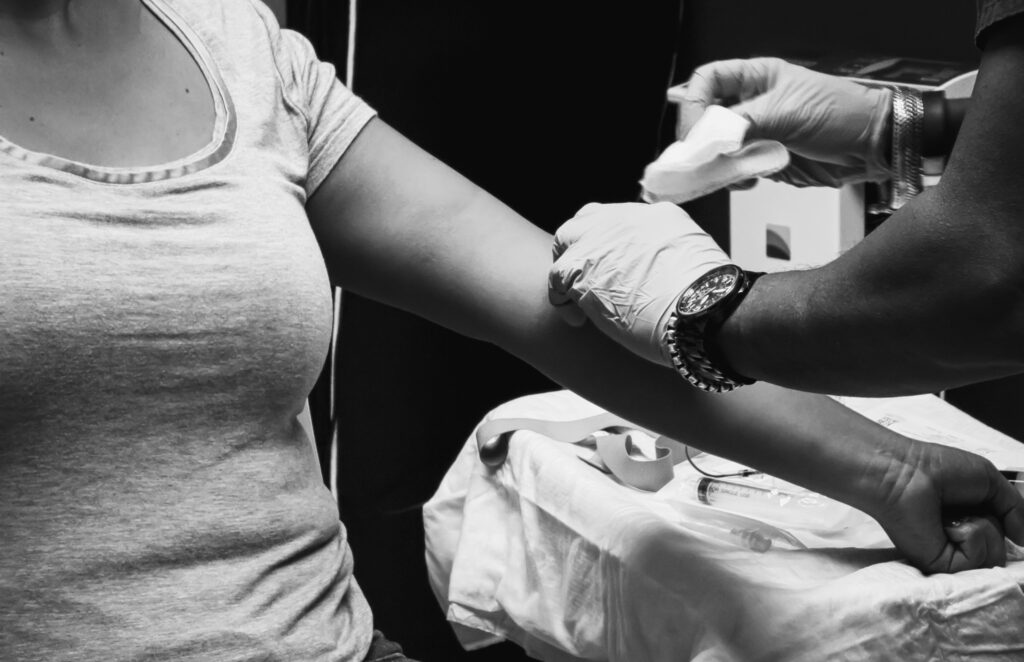
In this study, the Q-Pad was used for testing for the Human Papillomavirus (HPV), which has shown good results and reduces the uncomfortable, invasive, and often painful tests that women have to undergo to test for this. This could have significant implications for future prevention of cervical cancer.
In this study, the Q-Pad was used to test for HbA1c (diagnosis for type 2 diabetes), thyroid stimulating hormone (TSH) (diagnostic for thyroid dysfunction), follicle-stimulating hormone (FSH) (diagnostic for fertility and menopause), anti-müllerian hormone (AMH) (diagnostic for fertility: ovarian reserve and the number of potential eggs), and luteinizing hormone (LH) (diagnostic for fertility and menopause). These tests have traditionally only been done via venous blood samples (collection of blood from a vein).
“We are simplifying routine testing, and freeing up resources that can be used on providing care and ultimately our goal is to make health care much more accessible.”
Dr. Sara Naseri, Qvin Co-founder, Medical Doctor, and scientist
Addressing the gender gap by removing barriers to help
From a femtech perspective, this technology is groundbreaking not only because it tests menstrual blood but also because it addresses a significant problem, one which this OECD report explains: that women are often (not always) the primary care providers in the family, taking others to the doctor, running errands and running the household, all of which is unpaid labour, and which often prevents them from growing in their careers at the same rate as their male counterparts.
Therefore, something like the Q-Pad allows women to do a simple test which they can mail in, to monitor their biodata on their own time. In their press release, Qvin highlights: “Qvin eliminates common barriers to traditional laboratory testing, which can be difficult for many globally due to lack of access, time, or financial means. Removing these barriers to care can lead to better and more accurate diagnoses and health management.”
Menstrual innovation in 2024
It may raise eyebrows that in 2024, we are witnessing the approval of a product to test something as commonplace as menstrual blood for the first time.
However, this signifies a shift in societal attitudes, as taboos surrounding menstruation and women’s health are gradually dissipating, fostering an environment that encourages innovation in these domains.
Currently innovation typically looks like menstruation tracking and even understanding how the menstrual cycle affects the brain but there have been few notable innovations on menstrual blood itself.
Qvin was started in 2014, and it takes substantial hard work, dedication and research to come to this point, overcoming the stigma and as Qvin states on their website “challenging the status quo on period blood as a health, not hygiene product”.
To learn more, visit: https://qvin.com/

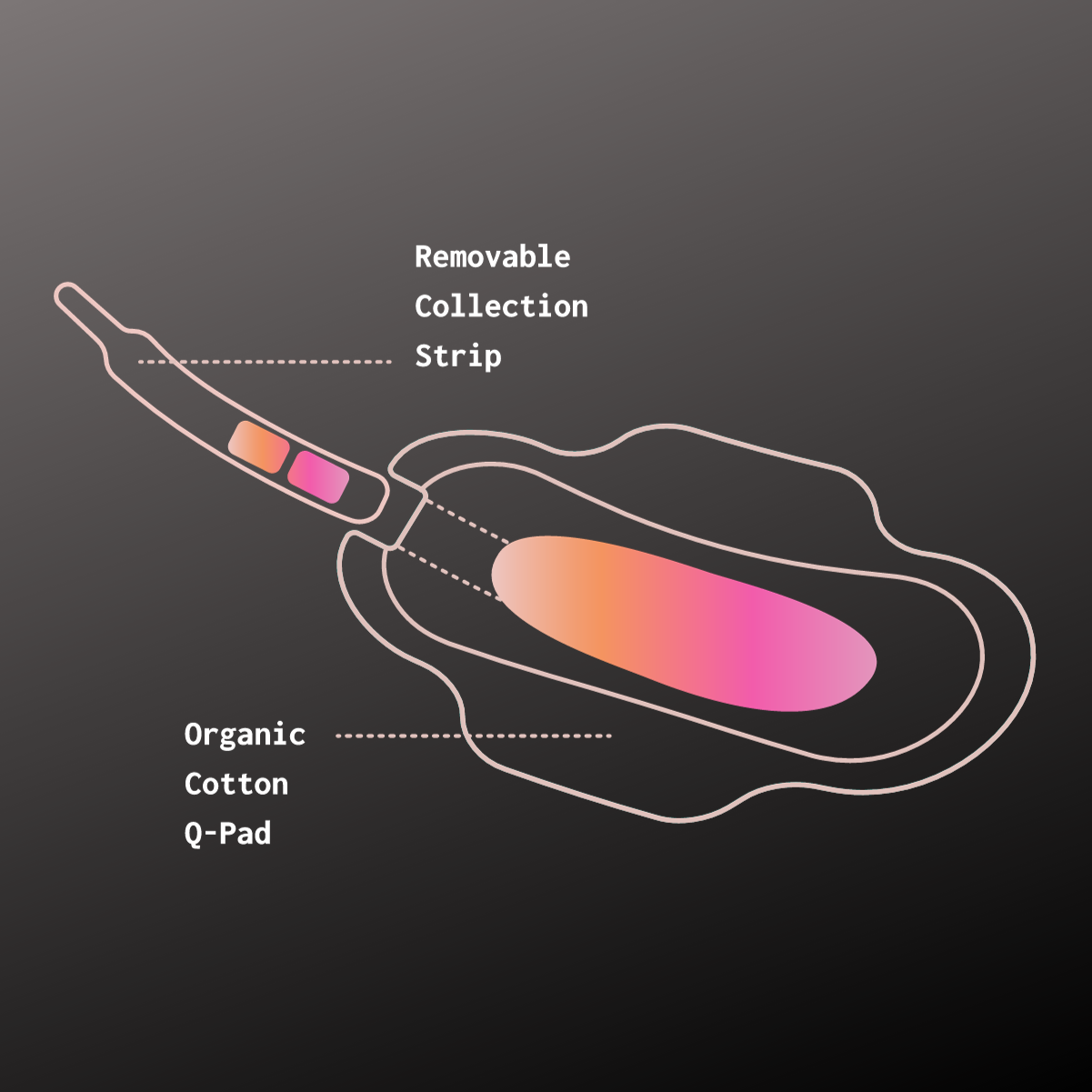







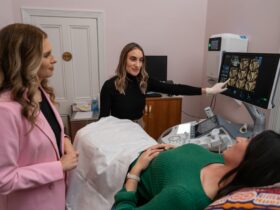
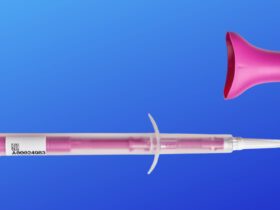
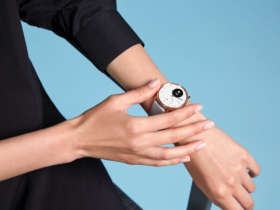
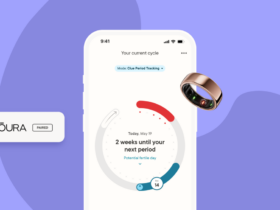
Follow us on social media